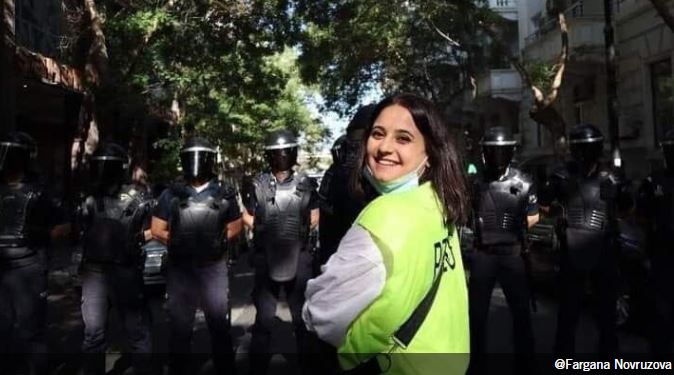
Azerbaijani Journalist Nargiz Absalamova Sentenced to 8 Years in Crackdown on Independent Media
November 25, 2024
UN Experts Urge Immediate Medical Evacuation for Critically Injured Gaza Journalist
November 26, 2024November 25, 2024 – Media –
In a controversial move that has drawn widespread condemnation, the Israeli Cabinet voted unanimously on November 24, 2024, to impose formal sanctions against Haaretz, the country’s oldest and most internationally recognized newspaper. The decision, spearheaded by Communications Minister Shlomo Karhi, bars all government institutions from purchasing Haaretz, subscribing to its services, or engaging with its journalists in an official capacity.
The government’s justification centers on recent remarks by Haaretz publisher Amos Schocken, who during a press event in London sharply criticized Israel’s leadership, accusing it of operating an apartheid regime and calling for international sanctions. Schocken’s comments, made amid Israel’s ongoing war in Gaza, triggered a swift political backlash, with ministers accusing the paper of undermining national unity and endangering state interests.
Haaretz, long regarded as a critical and independent voice in Israeli media, has maintained its editorial stance even under mounting pressure. In response to the sanctions, the newspaper issued a defiant statement warning of creeping authoritarianism. It likened Prime Minister Benjamin Netanyahu’s tactics to those of autocratic leaders like Vladimir Putin and Viktor Orbán, accusing the government of attempting to muzzle dissent and erode democratic values.
Press freedom organizations, including the International Press Institute (IPI) and Reporters Without Borders (RSF), have condemned the sanctions as a dangerous attack on media independence. Critics argue that the move sets a precedent for politically motivated retaliation against outlets that challenge official narratives, particularly in times of conflict.
The sanctions also come amid broader media restrictions. In recent months, Israel has banned foreign broadcasters such as Al Jazeera from operating in the country, citing national security concerns. Combined with financial and institutional isolation of Haaretz, observers warn of a shrinking space for pluralistic journalism.
As war intensifies and the government tightens control over public messaging, the targeting of Haaretz signals a troubling shift. Rather than defending democratic discourse, Israel’s leadership appears to be punishing it, raising alarms both domestically and abroad about the future of press freedom in the region.
Reference –
https://www.dawn.com/news/1874919/israeli-cabinet-sanctions-countrys-oldest-newspaper-haaretz
https://edition.cnn.com/2024/11/25/middleeast/israel-sanctions-haaretz-over-comments-intl-hnk
https://www.voanews.com/a/israel-sanctions-oldest-newspaper-over-critical-coverage-/7876062.html




